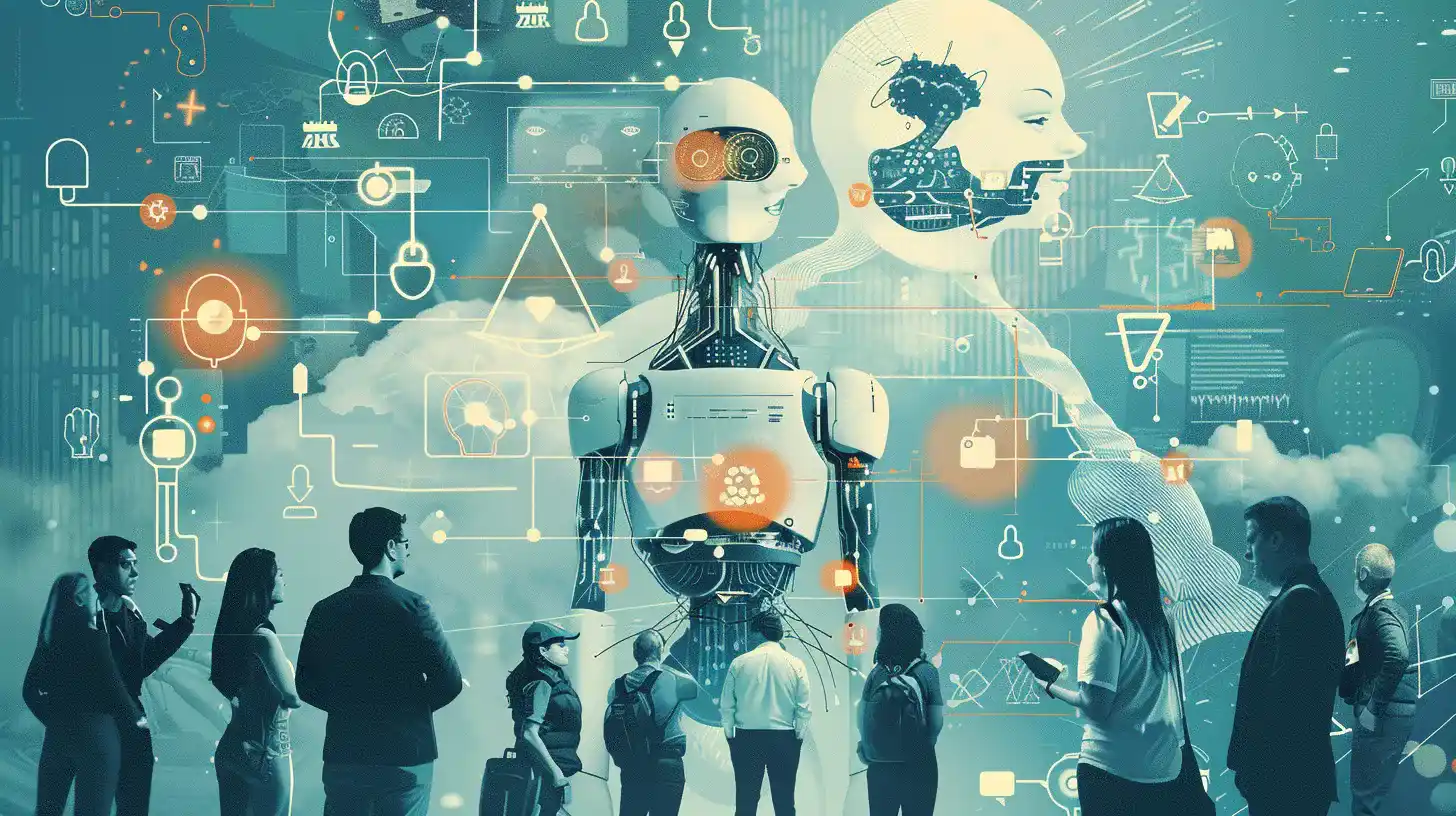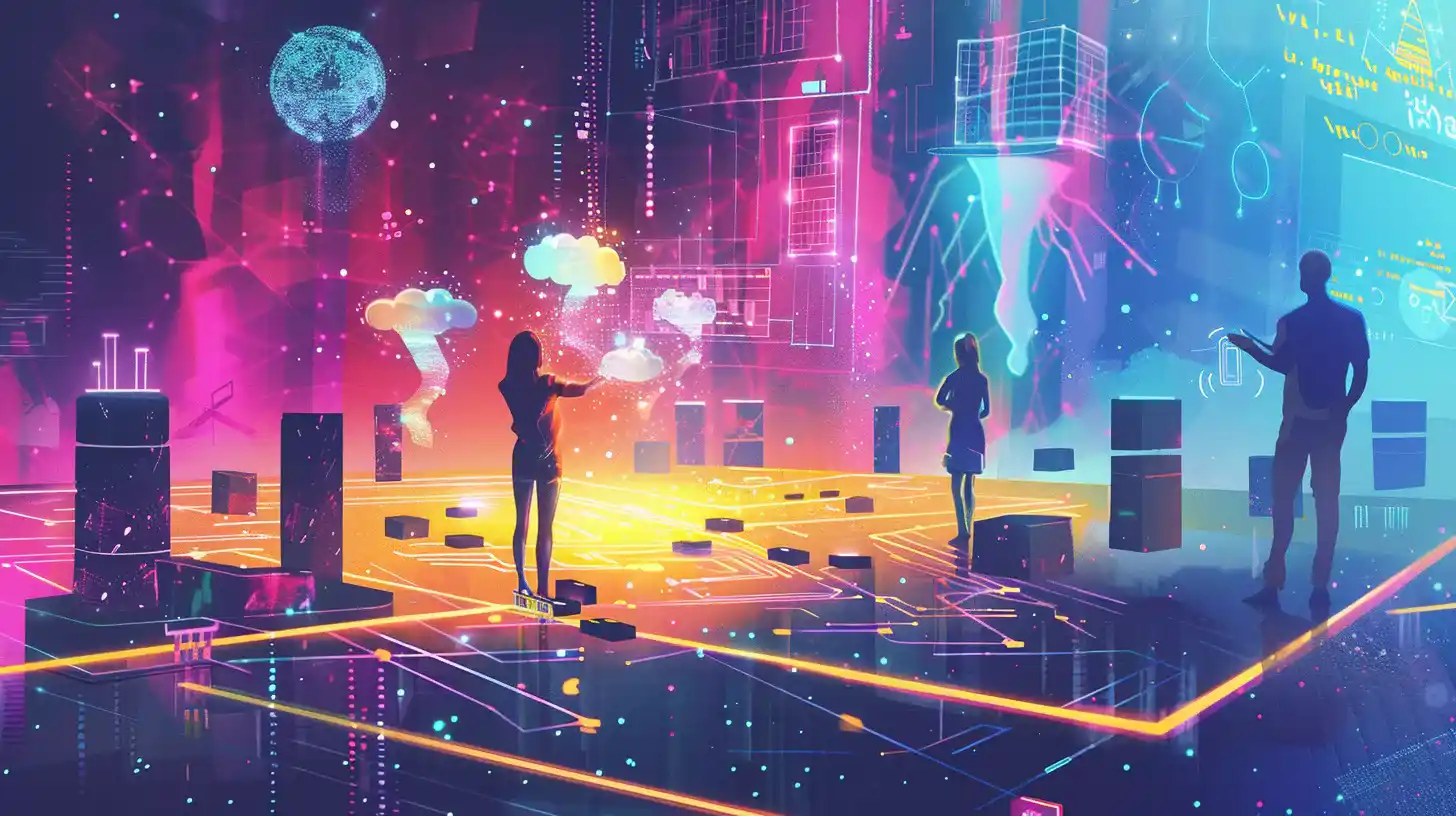Table of Contents
Generative AI Evolution: In an electrifying revelation at the GTC conference, NVIDIA unveiled AI Enterprise 5.0 alongside NVIDIA Inference Microservices, signaling a seismic shift in enterprise AI deployment under the visionary guidance of CEO Jensen Huang. This groundbreaking announcement not only promises to simplify AI Data Integration into the corporate world but also foresees altering the fundamental dynamics of human-computer interaction.
At the heart of this revolution lies a concept that might seem familiar yet is executed with unprecedented scale and ambition. Much like Humane’s introduction of prompt-based AI interaction, Huang’s vision extends this ease of communication to a broader audience, encompassing developers, IT professionals, and everyday consumers.
“The computer’s role shouldn’t hinge on the user’s knowledge of C++,” Huang remarked, advocating for a more intuitive interface with technology.
Programming: A Renaissance in the Making?
During an illuminating Q&A session, Huang was questioned about the fate of programming skills in the looming era of Generative AI Evolution prompts. His response was a masterclass in perspective-shifting. Huang likened coding to various forms of art and intellect – from juggling to playing the piano to unraveling the complexities of calculus. Yet, he posited a future where programming might not be the cornerstone of success it once was.

The keynote address was a veritable showcase of NVIDIA’s latest offerings, spanning data centers, enterprise AI, cryptography, and beyond. Here, Huang made a compelling case for Generative AI Evolution as a great equalizer in technology, asserting, “You don’t need to be a C++ maestro to thrive; becoming a prompt engineer suffices.”
The Shifting Sands of Prompt Engineering
But is the realm of prompt engineering set to usurp traditional programming methodologies entirely? While Huang’s vision suggests a significant pivot, the transition might not be as immediate or as absolute as one might think. Gartner analyst Chirag Dekate urged caution, indicating that the market’s enthusiastic pivot towards prompt engineering might be premature.
As the industry evolves, so too does the nature of prompt engineering, which is increasingly embracing multimodality over traditional text-based inputs.
NVIDIA‘s introduction of NIMs (NVIDIA Inference Microservices) is poised to play a pivotal role in this transition, marrying Generative AI Evolution with the diverse needs of the hybrid multi-cloud landscape. This move is designed to lay the groundwork for the next generation of AI-native enterprises, where AI’s presence is ubiquitous and transformative.
Yet, as Dekate hints, the spotlight might eventually shine on different players, such as Cognition AI and its AI software engineer, Devin, hinting at a future where software engineering’s traditional paradigms are thoroughly redefined.
A Rapidly Accelerating Generative AI Evolution Future
The dialogue surrounding Generative AI Evolution is fraught with anticipation of swift and radical change. “We’re navigating through a technological landscape where what was groundbreaking a few months ago swiftly becomes archaic,” Dekate observes, highlighting the blistering pace of innovation in generative AI.

This sentiment is echoed by David Nicholson, Chief Research Officer at The Futurum Group, who envisions a future where a nuanced understanding of human language becomes a prized skill in the realm of computer science. In this brave new world, a background in humanities could be as valuable as a technical degree, with Generative AI Evolution at the forefront of this transformative movement.
At the forefront of this revolution is the role of a generative AI development company, driving advancements that make this transformation possible.
As we stand on the cusp of this revolution, it’s clear that NVIDIA’s endeavors are not mere corporate bravado but a clarion call to a future where technology is more accessible, intuitive, and aligned with the human experience. Welcome to the dawn of generative AI, where the barriers between humans and machines are not just blurred but beautifully obliterated.
Empowering a New Breed of Innovators
The democratization of AI through the lens of Generative AI Evolution isn’t merely about technological advancements; it’s about fostering an environment where innovation thrives, unrestricted by the traditional barriers of technical expertise. In this emerging paradigm, the concept of prompt engineering emerges as a beacon of inclusivity, inviting individuals from varied backgrounds to contribute to the AI narrative.
This inclusivity champions a more diverse set of voices and perspectives in shaping the future of technology, ensuring that custom AI development is guided by a broader spectrum of human experiences and needs.
The Evolution of Human-AI Collaboration
As we delve deeper into the realm of generative AI, the nature of human-AI interaction undergoes a profound transformation. No longer are we mere operators or programmers of machines; we become collaborators, engaging in a dynamic exchange with AI to co-create solutions that were previously unimaginable.

This partnership heralds a new age of creativity and problem-solving, where the lines between creator and creation blur, giving rise to innovations that resonate more deeply with human values and aspirations.
Navigating the Ethical Landscape
With great power comes great responsibility, and the rise of Generative AI Evolution is no exception. As we venture into this new frontier, ethical considerations take center stage, challenging us to reimagine the principles that govern AI development and deployment. Issues of privacy, security, and bias must be addressed with utmost diligence to ensure that generative AI serves as a force for good, enhancing human capabilities without compromising our values or autonomy.
Looking Toward a Future Generative AI Evolution Unfolding
The journey of Generative AI Evolution is just beginning, with NVIDIA’s pioneering efforts marking the dawn of an exhilarating era. As this technology continues to evolve, it promises to redefine our relationship with machines, transforming them from tools of convenience into partners in innovation.
The path ahead is filled with challenges and opportunities, inviting us to participate in shaping a future where technology amplifies our potential, making the world not just more connected, but also more human.
In this transformative era, we are not just witnesses but active participants, crafting a legacy of innovation that bridges the gap between human creativity and machine intelligence. As we embrace the possibilities of generative AI, we step into a future where technology is not only a reflection of human ingenuity but a testament to our collective vision for a world where everyone has the power to create, innovate, and inspire.
Welcome to the revolutionizing interaction era, where every voice has the power to shape the future of technology.